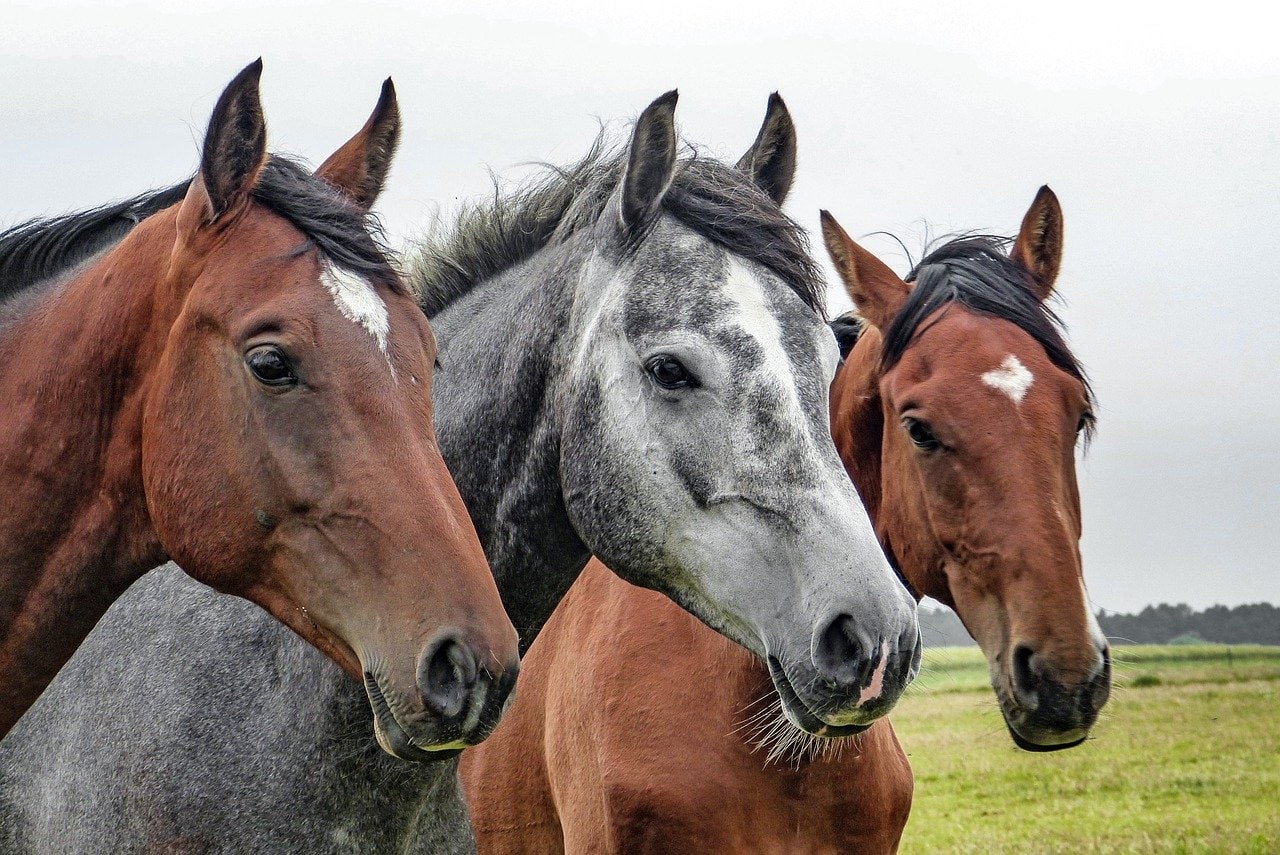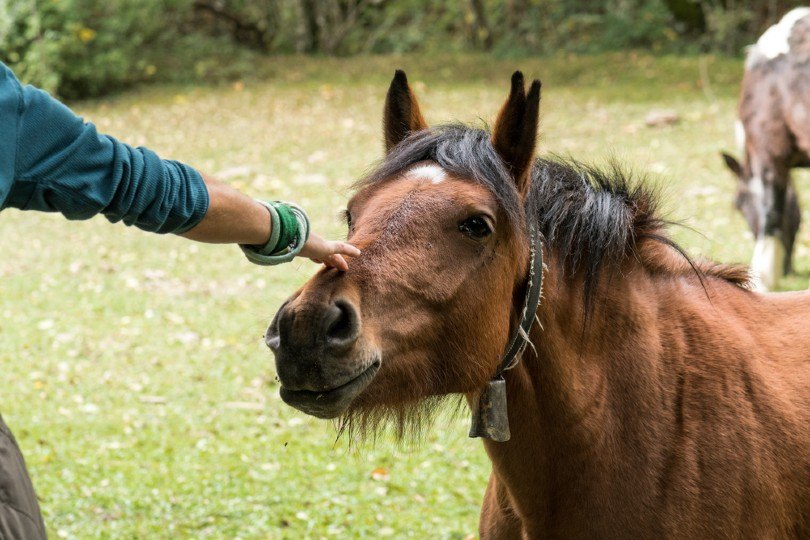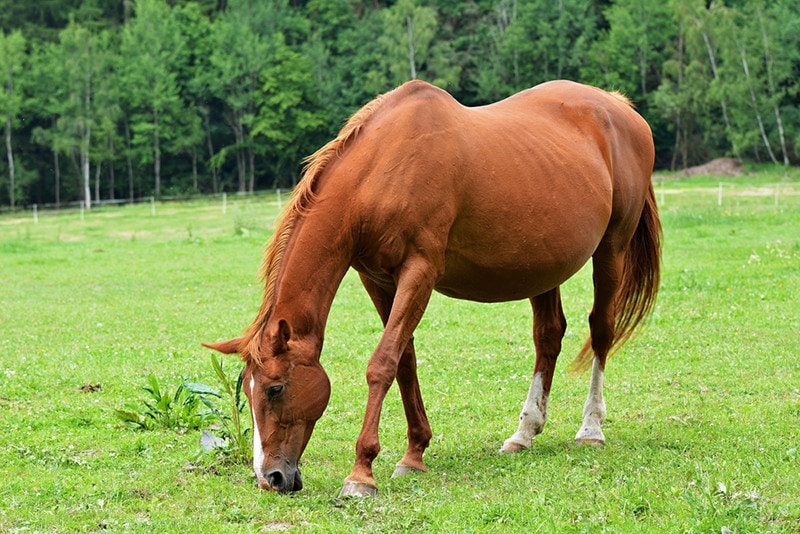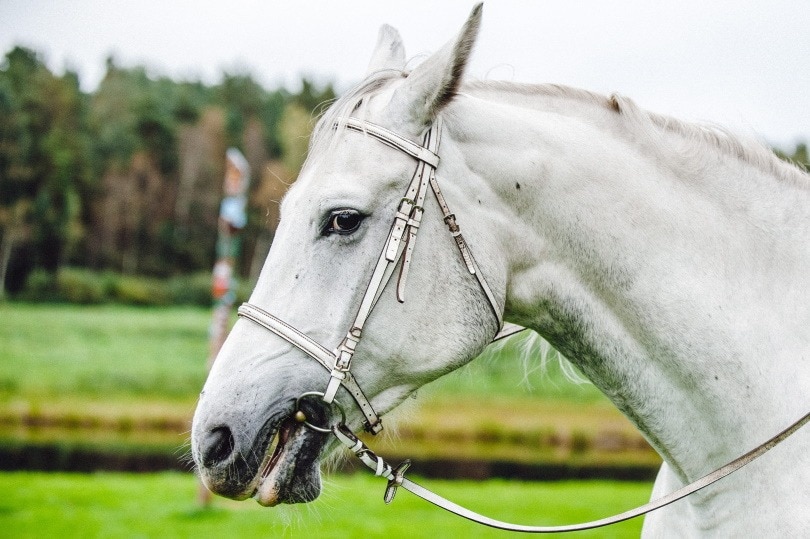
If you own a horse and ride it regularly, you’ve almost certainly seen it foaming at the mouth. For many animals, foaming at the mouth is a bad sign that’s cause for worry. Dogs, for instance, generally shouldn’t be foaming at the mouth under normal circumstances.
But horses aren’t dogs, and their indicators of poor health are different. Horses foam at the mouth frequently, and it can be caused by a variety of factors. While the underlying cause of your horse foaming at the mouth can sometimes be a major health concern, it’s often something much less severe and could even be a positive sign.

Should Your Horse Foam at the Mouth?
It’s natural for you to feel concerned if you see your horse exhibiting behavior that you deem as a bad sign. Foaming at the mouth is a bad sign for many animals, but for horses, foaming at the mouth can be a sign of normal function. In fact, in some cases, if your horse isn’t foaming at the mouth, that could be a bad sign! So, just because your horse is foaming at the mouth doesn’t mean that anything is wrong; it could mean that everything is right.
The 15 Reasons Horses Foam at the Mouth
Let’s take a look at 15 things that can cause your horse to foam at the mouth. Some of these underlying causes have positive connotations; others may require an immediate call to the vet.
1. The Horse Is Relaxed During Riding
Your horse foaming at the mouth is a perfectly normal response to riding. In fact, in certain riding disciplines, they try to work up a lather around the mouth before starting their ride. They call it a “happy foam.” It shows that the horse is engaging with the rider and properly on the bit.

2. Stress or Exertion
When your horse is working hard or is stressed, you’ll also notice foam building up around the mouth. This doesn’t have to be bad stress, though it can be caused by that as well. Just riding hard or running fast around the grazing area can cause your horse to start foaming around the mouth, and it’s not something to be worried about.
3. Latherin
Latherin is a protein that horse sweat and saliva are rich in. This protein turns both sweat and saliva into a soap-like substance that foams up easily. Because of this, you’ll often notice foamy buildup around the mouth, chest, and saddle area. Latherin is intended to help your horse easily digest dry forage, but when it’s mixed with friction, foam results. Additionally, latherin helps to improve your horse’s thermoregulation, keeping them cooler in the heat.

4. Incorrect Bit or Bit Placement
If your horse’s mouth is overly foamy, more so than is to be expected from a healthy horse being ridden, then the bit or bit placement could be to blame. When the bit breaks the suction of your horse’s lips, it causes air to mix with their spit, which allows it to work into a foam.
5. Toxicity
Sometimes your horse has toxicity built up that you might not be aware of. This could be from their feed or even from the field on which they graze. Some common toxicities include:

6. Bacterial Infections
Certain bacterial infections that horses are susceptible to can cause excessive drooling, which can then become foam around the mouth.
7. Eating and Drinking
Horses produce a lot of saliva when eating or drinking. It sounds crazy, but a horse makes 3-10 gallons of saliva each day, which is why they drink such enormous volumes of water. The saliva helps their food to digest, but it can also result in foam around the mouth. This foam is normal and harmless; a sign that your horse is functioning properly.
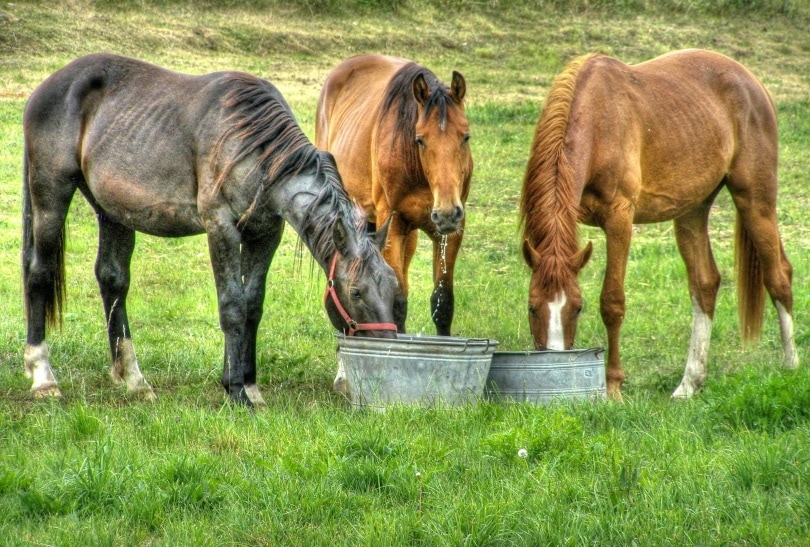
8. Injury in the Mouth
Horses are prone to injuries in the mouth just like we are. Similar to how you can’t leave a canker sore or a cut on your lip alone, your horse will likely be playing with any ulcers or sores with their tongue. This can cause excess saliva, which will in turn produce extra foam at the mouth.
9. Poor Riding Habits
When a horse is being ridden correctly, swallowing excess saliva is easy. But if you’re holding your horse’s head too high or pulling too hard on the reins, your horse might not be able to close its mouth and swallow the excess saliva.
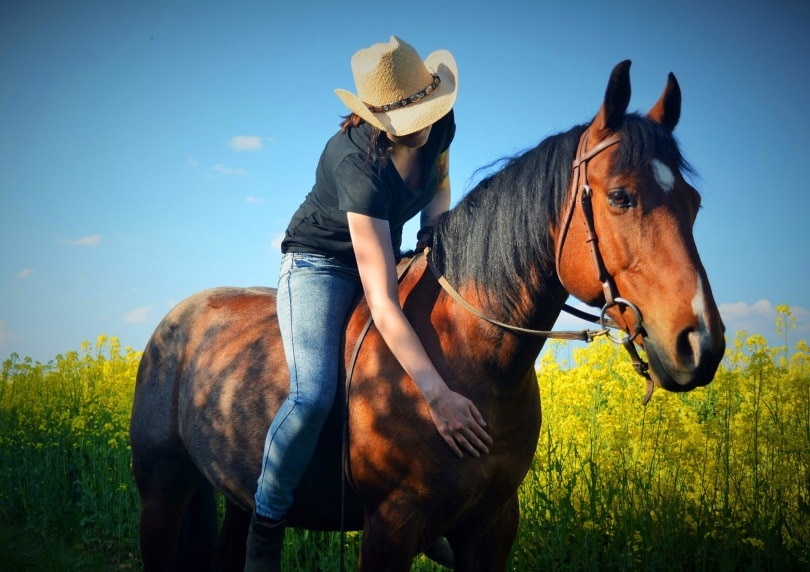
- You may also like: 9 Awesome Tricks You Can Teach Your Horse
10. “The Slobbers”
The slobbers is when a foraging horse begins to drool more than it should for no apparent reason. Often, it’s caused by fungus or other plants that create a reaction in the horse. It’s generally harmless for your horse, though it can be frustrating for owners.
11. Dental Issues or Diseases
Think about how awful it is to have an issue with one of your teeth. Well, it’s just as bad for your horse, and it can be the cause of excess foam buildup around the mouth. It doesn’t even have to be a major injury. Even excess plaque can result in foaming at the mouth. Common dental issues that can result in excessive mouth foaming include:

12. Choking
If you notice your horse coughing a lot while it’s exhibiting an excess buildup of foam around the mouth, your horse could be choking or may have something lodged in its throat. This could be a stick, stem, rock, or anything else they accidentally took in while foraging. If you think your horse has something stuck in its throat, call your veterinarian immediately for assistance.
13. Rabies
Horses aren’t generally thought about when you hear the word rabies, but they’re just as susceptible to this disease as other creatures. Usually, rabies is carried and spread by bats, raccoons, foxes, skunks, and other similar creatures. It’s quite preventable, thanks to the rabies vaccine, which the American Association of Equine Practitioners considers to be a core vaccine. Horses that have already received the vaccine have little chance of contracting this fatal disease.
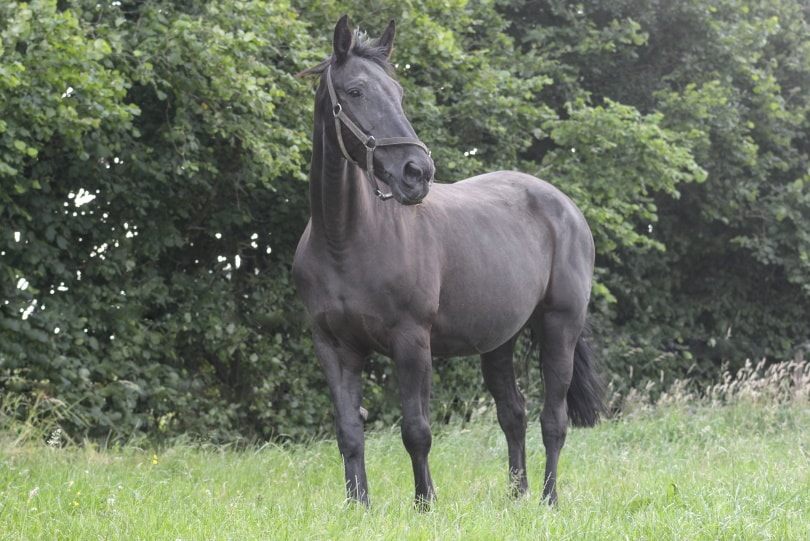
14. Vesicular Stomatitis
Rarely fatal but still serious, vesicular stomatitis causes blisters to form in and around the horse’s mouth. Horses infected with vesicular stomatitis often lose weight due to difficulty eating and may even become lame.
15. Other Diseases
Aside from specific diseases we’ve listed here, other illnesses and equine diseases can also cause excessive drooling and foaming at the mouth. While they’re quite rare, the following diseases are still possible culprits for your horse’s foaming at the mouth.


How to Stop Your Horse from Foaming at the Mouth
If your horse is foaming at the mouth and you think it should stop, then you can easily take action to mitigate the issue. To solve this dilemma, follow these three steps.
1. Identify the Cause of the Foaming
The first step is to determine exactly why your horse is foaming at the mouth. We’ve covered the 15 most common reasons, so you’re likely to find the culprit on this list. Read through the list carefully and see which of these signs corresponds closest to what your horse is exhibiting.
2. Is the Cause Something to be Concerned About?
Now that you’re pretty sure you’ve identified the cause of your horse’s foaming at the mouth, you have to decide if it’s something that actually requires addressing or not. For instance, if you find that your horse is foaming at the mouth as a natural and healthy response to being ridden properly, then you don’t want to do anything about it. But if your horse is foaming at the mouth because of an underlying dental issue, then you know it’s something that can and should be fixed.
3. Seek Help
At this point, you have a good idea of what’s causing your horse to foam at the mouth and you think it’s a negative thing that should and can be fixed. It’s time to seek help. Unless you’re a veterinary expert and can solve the problem on your own, you’ll want to consult someone with specific equine veterinary knowledge.
You can start by searching online for cures related to the cause you’ve identified for your horse’s mouth foaming, but then you should consult your veterinarian and get a professional’s opinion. Your vet might want to see your horse and check on them in person, which could be in your horse’s best interest. Then, follow your vet’s instructions for how to treat the underlying problem, and hopefully, your horse will no longer be foaming at the mouth.

Conclusion
Just because your horse is foaming at the mouth doesn’t mean you need to be alarmed. There are plenty of good reasons why this could be happening, and some of them are positive. Still, it’s a good idea to determine the cause of your horse’s mouth foaming, just in case the reason is an underlying health condition. If that happens to be the case, consult your vet to get a professional opinion about the best course of action to take.
- Next on your reading: list: Do Spurs Hurt Horses? Is It Ethical?
Featured Image Credit: Piqsels
